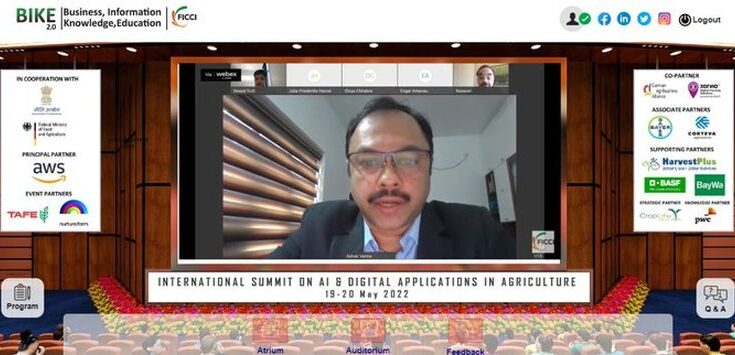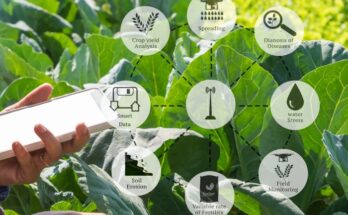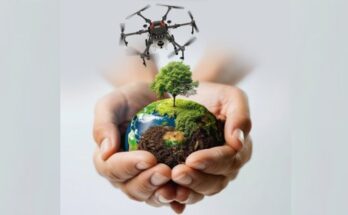Federation of Indian Chambers of Commerce & Industry (FICCI) and PwC today jointly released a report, ‘Redefining Agriculture through Artificial Intelligence: Predicting The Unpredictable’ at an international conference on ‘Artificial Intelligence & Digital Applications in Agriculture, jointly organised by the federation and German Agribusiness Alliance.
Key highlights of the FICCI-PwC report
The smart agricultural systems and technologies, including AI and machine learning (ML), are showing remarkable growth with the investment and expenditure trends expected to triple by 2025 to USD 15.3 billion, out of which AI technologies alone are projected to grow at a CAGR of 25.5 per cent.
Within AI interventions, Internet of Things (IoT)-enabled agricultural monitoring is the fastest-growing technology segment, projected to be worth USD 4.5 billion by 2025. The global market size for AI in agriculture stood at USD 852.2 million in 2019 and is expected to reach USD 8,379.5 million by 2030, exhibiting a CAGR of 24.8 per cent during the forecast period (2020–2030). This market growth is propelled by increasing penetration of IoT in the agriculture industry with the implementation of data generation through sensors and aerial images for crops, leading to an increase in crop productivity through deep-learning technology.
Technological advancements in recent years are reengineering both the upstream and downstream segments of the agriculture value chain. Cutting-edge technologies in AI such as IoT, ML, cloud computing, statistical computing, deep learning, virtual reality (VR) and augmented reality (AR) are enabling the sector to overcome the challenges of productivity, quality, traceability and carbon emission with enhanced profitability.
You may also like to read: Indian startups need access to data and market to tackle technology adoption in agriculture: Anna Roy, NITI Aayog
The adoption of innovative and transformative smart farming practices in the country is gradually becoming a major trend. Smart and technology-driven resource management, modernisation of agriculture supply chains, climate risk mitigation strategy, digitising farm collectives as farmer producer organisations (FPOs), the emergence of a startup ecosystem and government initiatives in digital farming are some of the steps being taken to encourage smart farming practices.
The report identifies the following intervention areas to enhance the AI-based transition of the country’s agriculture sector:
- Regulatory interventions, Policy interventions and awareness and capacity building interventions
- Revise agriculture educational curriculum to include a programme on AI
- Establish an agritech innovation centre through public-private partnerships (PPPs)
- Enhance outreach through the existing network of agriculture universities and krishi vigyan kendras (KVKs)
- Build simple farmer-friendly systems and establish sustained partnerships
- Increase investment in low-cost, open-source cloud-based platform solutions
Emphasising the need of transforming artificial intelligence into agricultural intelligence, Ashok Varma, Partner and Leader – Social Sector, PwC India said, “AI-enabled models in agriculture and allied sectors are imperative. To transform AI to agriculture intelligence leading to widespread adoption of technology, a 3S strategy is required- Scale, Skill and Service”.
These interventions if implemented can lead to widespread adoption of the AI-based technology in the agriculture ecosystem of the country, the FICCI-PwC study recommended.





